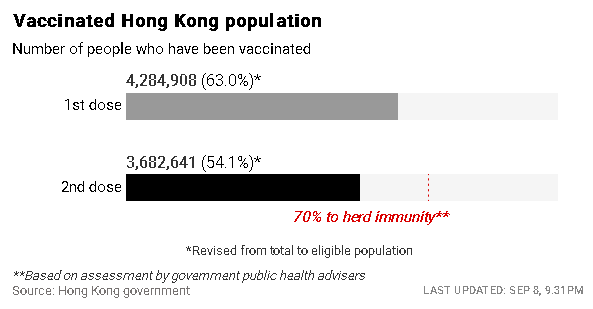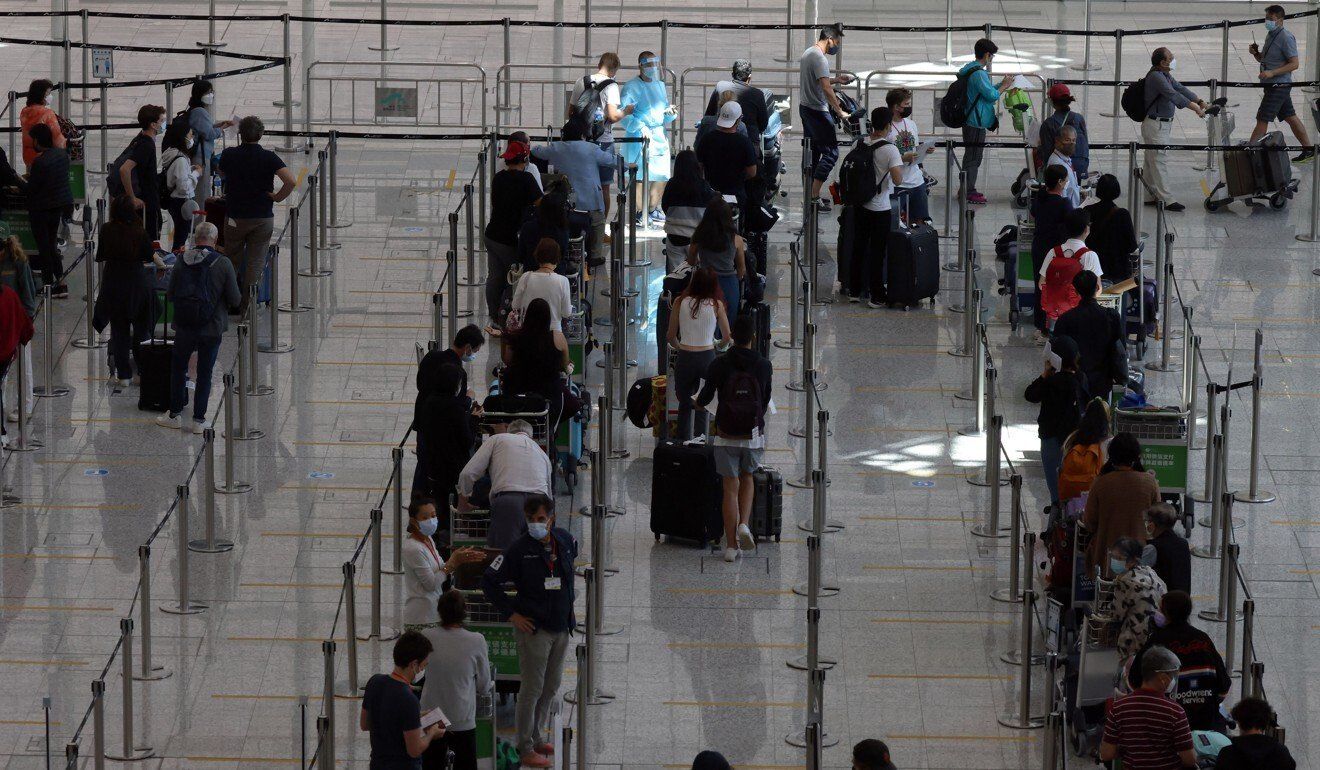Now labelled a ‘variant of interest’ by the World Health Organization, its first known appearance in the city was caught during hotel quarantine.
A new coronavirus variant that could be more vaccine resistant was detected over the summer by Hong Kong authorities after first being found in South America.
Local health officials say the city has imposed stringent measures, including testing, contact tracing and inbound restrictions, to prevent the spread of variants.
The Post takes a look at the new variant, named Mu, and how much of a threat it is to public health.
What do we know about the Mu variant?
Mu, also known as B. 1.621, was first found in Colombia in January, and the World Health Organization (WHO) added it to its list of “variants of interest” last week.
It is the fifth variant of interest to be monitored by the WHO. A variant of interest can be upgraded to “variant of concern” if it becomes more contagious, causes more severe illness, or evades the protection offered by vaccines.
The health agency has categorised variants of concern to prioritise global monitoring and research, with the Alpha, Beta, Gamma and Delta types previously added to the list.
All viruses, including SARS-CoV-2, which causes Covid-19, mutate over time, and most mutations have little or no effect on the properties of the virus.
 Professor David Hui says the relatively slow spread of the Mu variant .
Professor David Hui says the relatively slow spread of the Mu variant . How many Mu cases have been detected locally?
Infectious diseases specialist Dr Ho Pak-leung told a radio programme on Friday he had spotted two cases involving the variant while looking through a government database open to the public. He also questioned why residents had not been told about the infections.
Later in the day, health authorities confirmed that three imported cases carrying the variant had been detected over the summer.
Two of the patients – a 19-year-old man and a 22-year-old woman – had flown in from Colombia and were confirmed to have the Mu variant in early June.
Another 26-year-old woman who had arrived from the US had also carried the variant. She was found to be infected on July 24.

Is the Mu variant likely to trigger a bigger outbreak?
About 4,500 infections involving the Mu variant have been reported across 39 countries, with more than half discovered in the US.
Government coronavirus adviser Professor David Hui Shu-cheong said it was unlikely the Mu variant would spread rapidly, emphasising that the Delta type was a greater threat.
“Mu emerged in January. But the Delta variant also emerged around the same time and it has spread to 163 countries, so it has a much higher potential for spreading,” he told the Post.
The three cases detected in Hong Kong were found while the arrivals were undergoing hotel quarantine and had no direct contact with the local community, Hui said.
“They did not pose any risk to Hong Kong. It did not spread around in the community, so there wasn’t any problem that needed to be alerted immediately,” he said.
Hui also highlighted the time it took to conduct genome sequencing of coronavirus samples to identify which strains were present.
“Variants of interest will emerge with time, so eventually they will come up one after another. If they don’t cause problems within the community, there’s no urgent need to [alert] the public,” he said.
Do we need to take extra precautions?
Secretary for Food and Health Sophia Chan Siu-chee was asked why the public had not been told or alerted about the Mu variant cases immediately.
“Whether it is a new variant, variant of concern or any Covid-19 virus, we treat it in a very prudent manner,” Chan said on Saturday, adding officials were closely monitoring the situation.
Hong Kong already has some of the most stringent inbound quarantine policies in the world to prevent importing coronavirus infections.
 Hong Kong imposes some of the toughest coronavirus requirements in the world on inbound travellers.
Hong Kong imposes some of the toughest coronavirus requirements in the world on inbound travellers.
Do vaccines work against the Mu variant?
There is no conclusive evidence as to whether the Mu variant will be able to evade the protection provided by current coronavirus vaccines.
The WHO warned that as the Mu variant had numerous mutations, it could be more resistant to vaccines, but stressed that further research would be needed to confirm this.
A laboratory study by experts in Rome tested the effectiveness of the Pfizer-BioNTech vaccine against the Mu variant, and found it was “neutralised” by antibodies produced by the jab.
However, a study published in medical journal The Lancet Infectious Diseases on August 13 suggests that the Mu variant might show resistance to vaccines.
“The presence of mutations associated with vaccine escape might warrant reclassification of this variant to a variant of concern and deployment of additional public health resources to contain spread,” the scientists concluded in the report.















